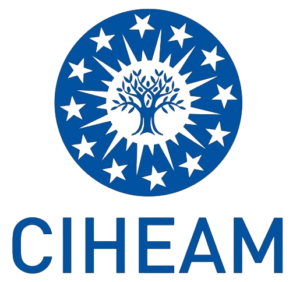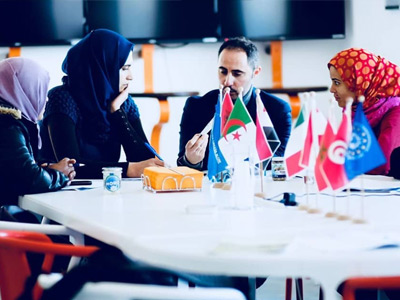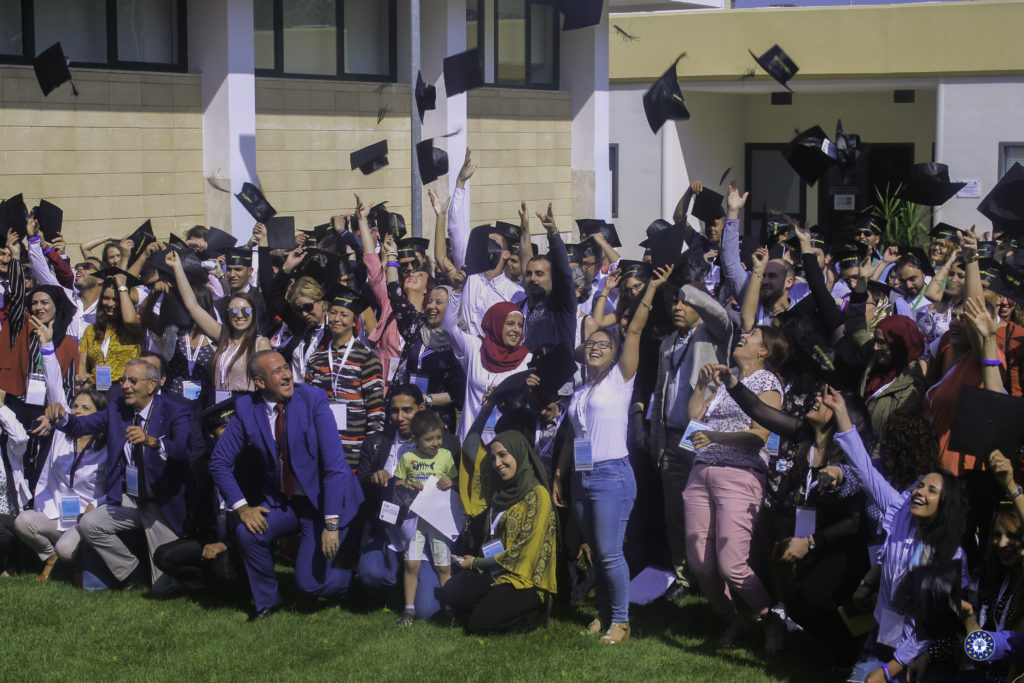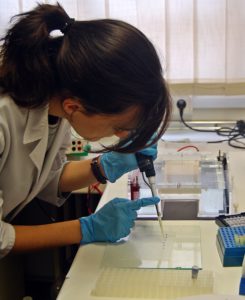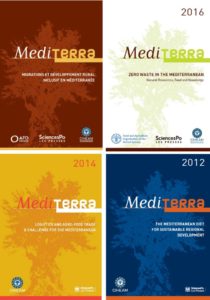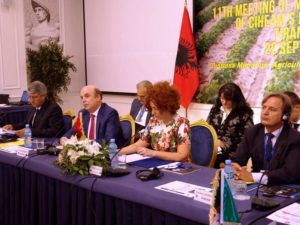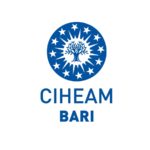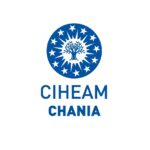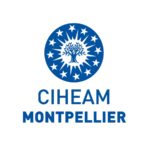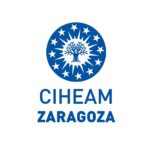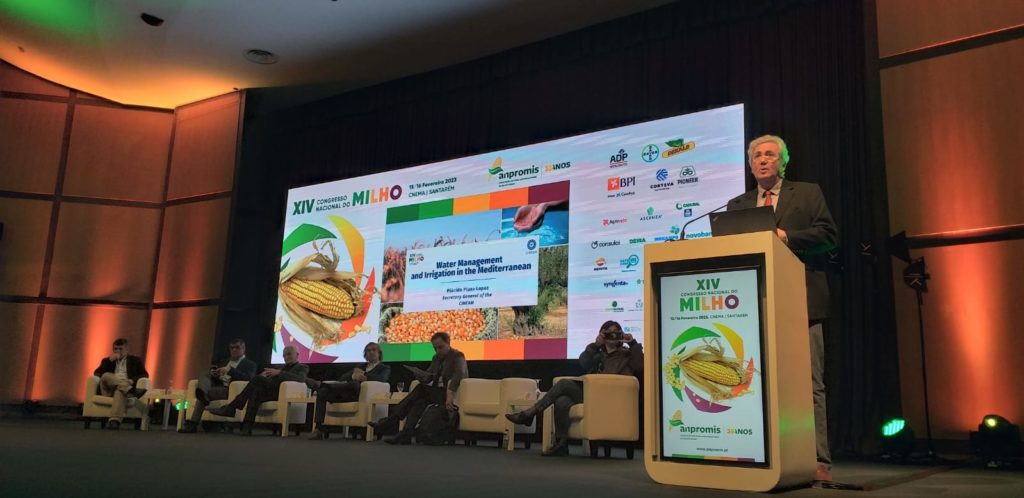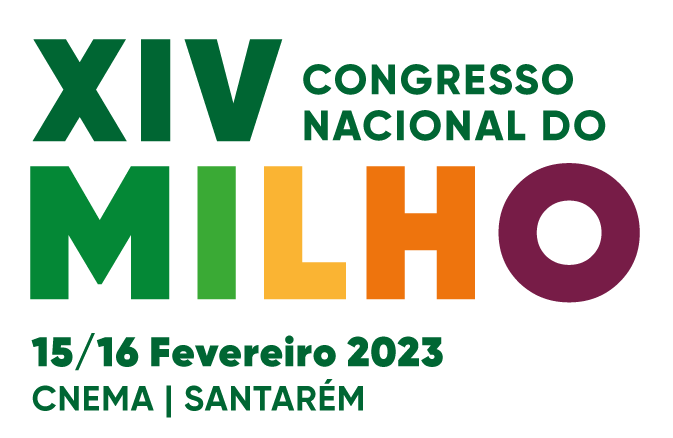
16 February 2023, Santarem, Portugal
On the occasion of the XIV National Corn Congress held in Santarem (Portugal) from 15 to 16 February 2023 on the role of agriculture in world geopolitics with regard to energy and water issues, the Secretary-General of CIHEAM, Mr Plácido Plaza, spoke on the subject of irrigation in Mediterranean agriculture. This is a complex subject at the intersection of climatic, environmental, socio-economic and governance considerations that requires a concerted, multi-stakeholder approach.
Invited to introduce the session dedicated to the importance of irrigation in Mediterranean agriculture, the Secretary-General, after presenting the CIHEAM and recalling its role as a regional platform for cooperation, research and policy dialogue, insisted on the Centre's ambition to promote and perpetuate multi-stakeholder collaboration at national and regional level for a shared Mediterranean food and water security.
Through a presentation of the regional panorama, he addressed the question of the availability and distribution of water resources, the effects of socio-demographic developments and climate change, as well as the risks of tensions and conflicts that could result from increased pressure on this precious resource.
In particular, he recalled that the Mediterranean region alone accounts for 60% of the world's so-called "water-poor" population (less than 1000 m3/inhabitant/year) and that in several countries there is chronic overexploitation of water resources above their annual recharge capacity.
Focusing on the water-food nexus, his presentation also put into perspective the strategic function of irrigation insofar as it contributes to increasing the useful agricultural area - a source of food sovereignty - and to conditioning human settlements, hence its potentially conflictual dimension when river basins are shared and natural resources are limited.
For a necessary water revolution in the Mediterranean
Far from painting a pessimistic picture, the presentation focused at greater length on the diversity of levers that can be mobilized to reduce uncertainties and risks, by presenting a basket of solutions in the fields of sustainable agricultural water management (varietal selection, conservation agriculture, diversification, innovations in irrigation techniques, alternative water resources), while advocating an approach that does not oppose actors and ideas.
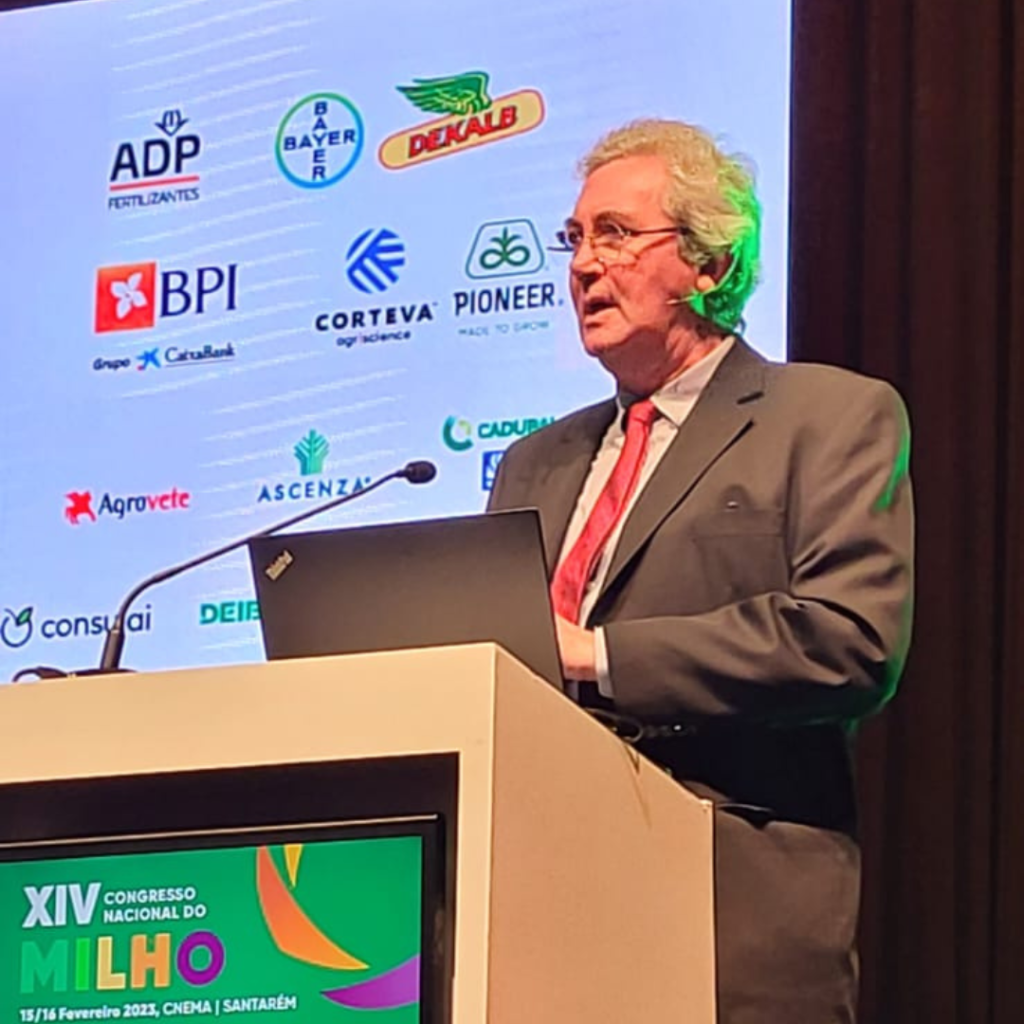
"We must learn to work together (users, public-private, local authorities, States, etc.) to act on demand, reduce losses and misuse in order to improve the efficiency of resource use as much as possible. This can lead to considerable progress", he said.
As the issue of water cannot be dissociated from that of soils and the transition towards more sustainable and responsible agri-food systems, he recalled the need to ponder irrigation as an aspect of resilience, of the living conditions of farming communities, and of biodiversity preservation.
To conclude, he defended the urgency of understanding our "upstream-downstream", "urban-rural", and "water-rich-poor" relationships as solutions to eventually consider water scarcity as a unique opportunity to explore the potential of solidary and complementary food sovereignty in the Mediterranean.


